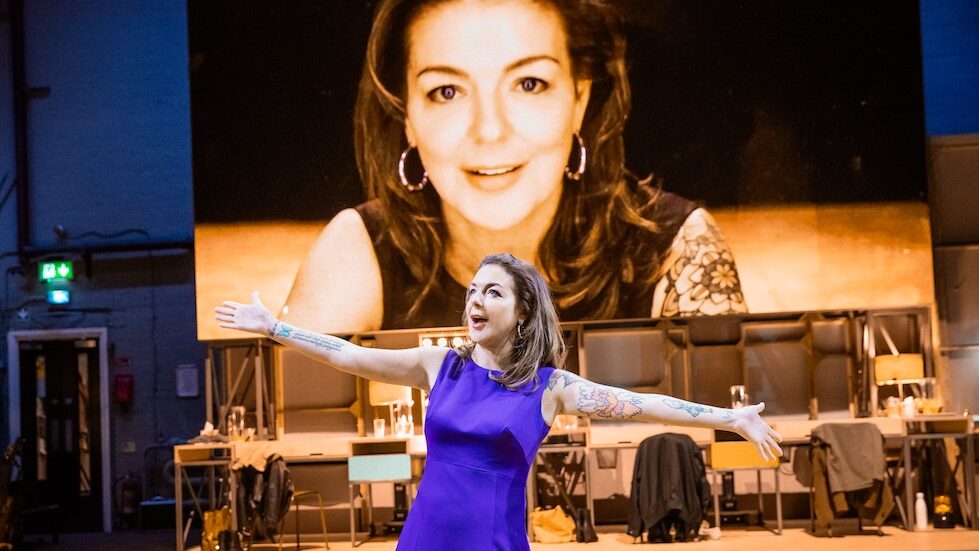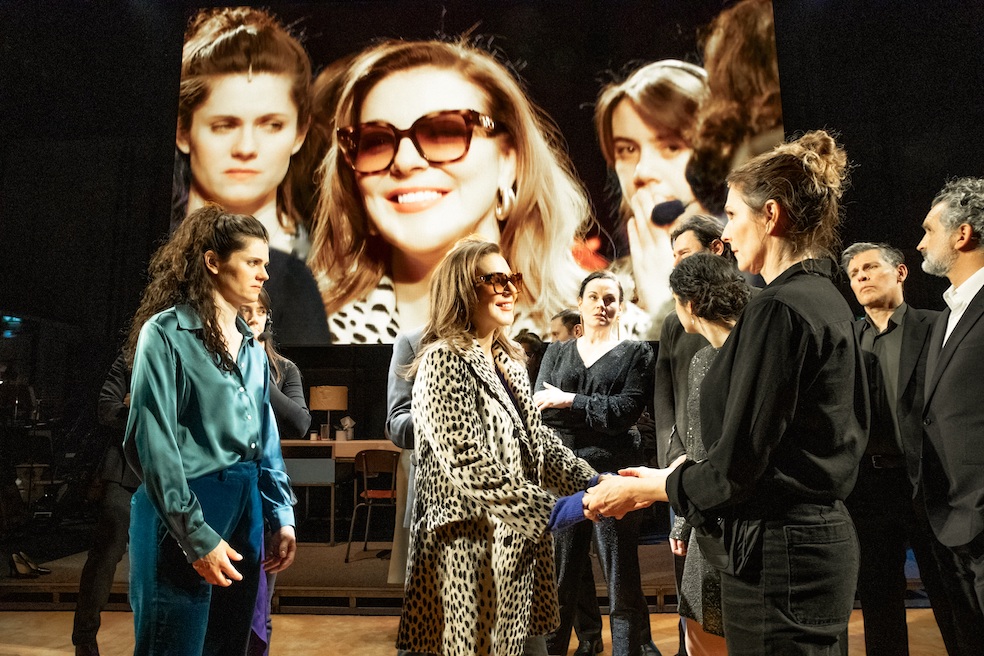Opening Night review: A missed opportunity sorely lacking in camp
Sheridan Smith shines in this otherwise curiously unaffecting musical scored by Rufus Wainwright. What on earth went wrong?!

Name a more fabulous duo than Sheridan Smith and Rufus Wainwright, our best Judys. We’ll wait. Imagine a night out with them. The music! The glamour! The drama! The humour! We’d give anything to experience it.
The next best thing, we reasoned, was Opening Night: a new musical starring Sheridan and scored by Rufus about the very public breakdown of a Broadway legend.
‘How much Judy Garland energy can one production take?!’ we told ourselves of this unlikely pairing. ‘It’ll be a sensation!’
We rocked up to London’s Gielgud Theatre, then, believing we were on the town with ‘Shrufus’. Believing – like the crazed fan whose death at the stage door sparks our protagonist’s unravelling – that our favourites could do no wrong.
Clutch your pearls, then. Because despite Shrufus’s best efforts – for really it’s superbly acted and enjoyably composed – Opening Night is kind of pants. It’s not even a fabulous disaster. It’s just curiously unaffecting.

What went wrong? Not the plot, surely, adapted from the 1977 John Cassavetes film, and catnip to a certain strain of gay man in thrall to resilient women. A stereotype this humble reviewer happily conforms to. At least until the umpteenth Amy Winehouse or Britney Spears film. What’s with our appetite for these stories, seriously? Might they, at last, be getting old hat?
“I felt like it was written about my life,” showbiz survivor Sheridan has noted of the tale. It’s dream casting, for sure. The star brings powerful authenticity to the role, having suffered well-publicised struggles during her 2016 turn in Funny Girl. (Again, it’s cliché, but her grit made us love her more.)
Still, something doesn’t quite fit. Why is her character, Myrtle, blonde in the programme but brunette on stage? An irrelevant detail, perhaps, but distracting. Evidence of indecision, maybe? And why the New York accent – why all the insufferable American accents – when the action is screaming to be set in the West End? (It’s not like the show is afraid to get meta, as this breathtakingly bold PR stunt proves.)
Like Sheridan, Rufus imbues Opening Night with depth and feeling. Not all of it sticks. “You’ve got to make magic out of tragic” he suggests, and he does. He’s been to hell and back and lived to tell the lyrically sublime, velvety voiced tale. But like with Tori Amos’s The Light Princess, Rufus’s compositions – the height of elegance and sophistication, as always – are a touch inaccessible for the casual listener. Sheridan, perhaps, needs more robust, crowd-pleasing show-tunes.
But if audiences are walking out of Opening Night, it’s not because of the music or acting. (The supporting cast are great. Nicola Hughes is unforgettable as Myrtle’s domineering playwright Sarah, spitting with rage at casual sexism, while Unorthodox’s Shira Haas is compellingly weird as fan-turned-ghost Nancy. Her palpable queer chemistry with Myrtle needs exploration.) More likely, it’s Ivo van Hove’s retrained direction.
While rehearsing their play within a play, the actors perform the same scene over and over with steadily increasing intensity. They’re directed to give more, more, more, and radiate fire. It’s painfully ironic, then, that in their resting states, the characters lack energy.
The goal, it seems, is realism, perhaps in an attempt to avoid revelling in a woman’s pain. But the dourness doesn’t land – just look at the boring costumes! – and an injection of camp is what’s needed.
Sheridan brings flashes of it, punctuating the drudgery with warm humour, her character’s silly facial expressions and chaotic body language while drunk nothing if not relatable. Anyone who’s dealt with addiction knows, sometimes you just have to laugh at the absurdity of it all.
Finally, there’s the drab, bare staging, a huge monitor overlooking and overwhelming the action. As documentary filmmakers shoot Myrtle, live visuals play on-screen – just what you want on a night off from your phone. I kept darting my eyes between real life and its 2D reproduction, obsessing over a perceived delay, questioning whether the footage was really live. It was maddening.
Sheridan and Rufus remain our best Judys. But in Opening Night, you feel their spiritual godmother leaving the building.
